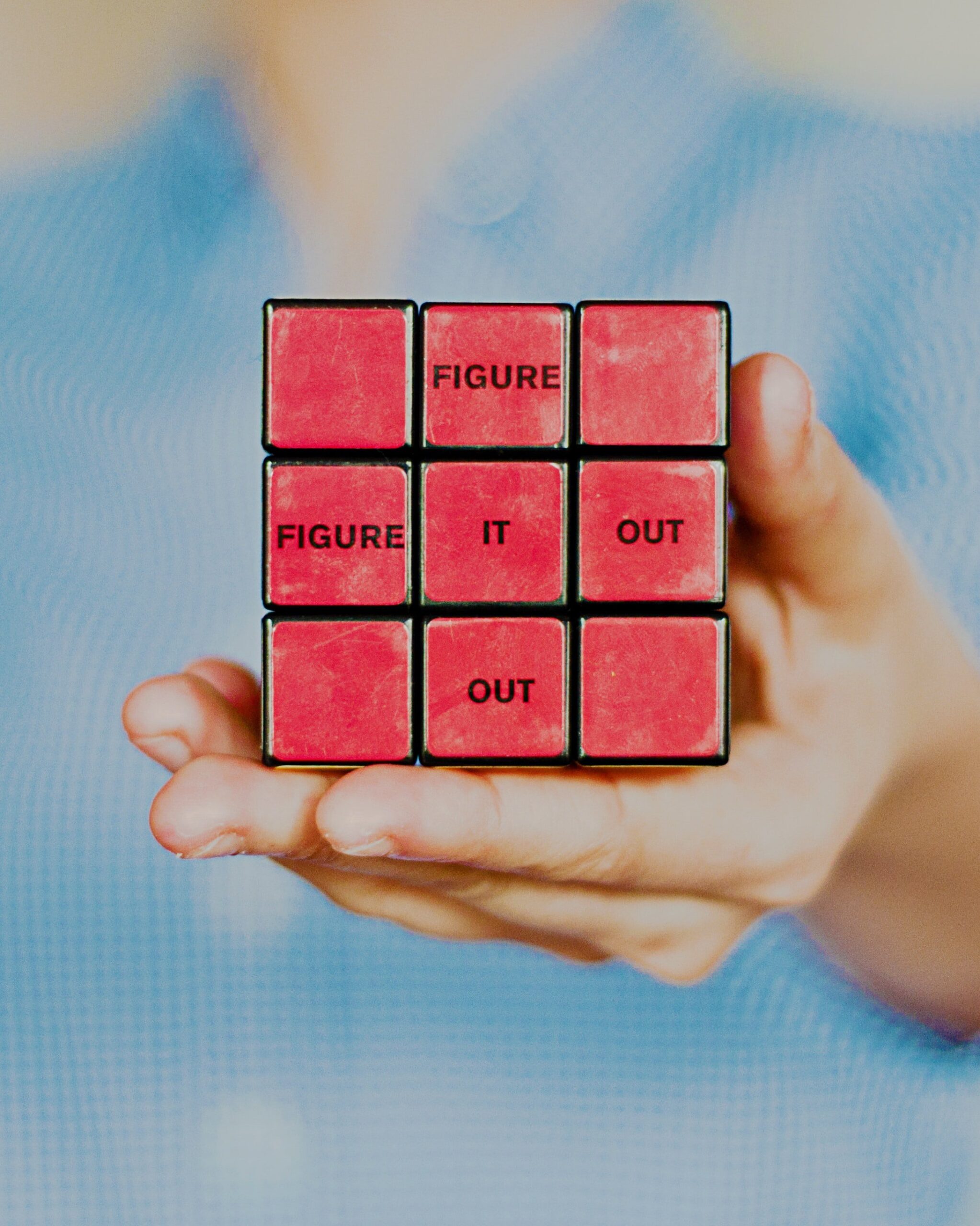THE BLOG

The way you begin your morning can have a huge impact on the rest of your day, whether this be a positive or negative impact. The first moments of the day have a correlation to your productivity and your mood. Starting the day off on a positive note helps to set you up for success to conquer the day. This all begins with a morning routine that sets a positive tone.
Most parents have been in the situation where their child continues to act out, break rules, or even talk back; all these situations can be frustrating and disheartening. Now think back to these times and how it is that you reacted. Did you find that your reaction was effective in changing or stopping the unwanted behavior? The way that parents react and discipline in these situations can be a great learning opportunity for their child.
If you are trying to cope with a divorce, you may experience a grieving process. Know this is normal and that there are several things you can do in order to cope with difficult feelings. Divorces can be exhausting, overwhelming, and full of negative emotions. You may experience feelings of depression, anxiety, and/or stress. Know that these feelings are valid. While you navigate through this grieving process, you may go through cycles of feelings. It is important amidst this to enjoy all the things you previously loved doing and make space for you and what brings you joy.

Trust in a relationship, whether it is a romantic relationship or a relationship with a friend or family, is one of the most important building blocks for a close, healthy relationship. It is also unfortunate how easy it is to lose trust, and how challenging it can be to rebuild. To rebuild trust you need time, patience, and hard work; and it is possible if both people are motivated.
Therapist Favorites
Explore a curated selection of blog posts recommended by our therapists, designed to provide valuable insights, practical tips, and expert advice on a variety of mental health topics.
MEET OUR THERAPISTS

As much as we would like to never experience grief, it is a universal experience that is unfortunately inevitable. Grief is the acute feeling of shock, overwhelming sadness & pain when someone passes away. It comes on suddenly, is strong & usually knocks the wind out of us. Grief comes in waves & may impact you at different times in your life. For example, if you just received a promotion at work, your first instinct might be to call your mother to share the good news. As you pick up the phone, you suddenly remember that your mother passed away a few years ago. The realization that she is no longer living, causes feelings of grief to wash over you. This is how grief ebbs & flows. Grieving on the other hand is the process of how we adapt to this loss in order to move forward with our lives. Grieving is fluid & demonstrates the relationship we have with grief as it changes over time.

When many of us think of “wellness”, the first thing that may come to mind is our physical or mental health. Although our physical and mental health are important aspects of our wellness, there are many more contributing factors. Debbie Stoewen identifies eight separate, but equally important, components of wellness (2017). These eight components, named the “Dimensions of Wellness”, are independent of one another, but can also significantly influence and impact each other as well. These dimensions don’t require equal attention paid to them, but neglecting one can have negative consequences on the others, including our overall wellness.

It’s that time of the year again. St. Patrick’s day can be a highly anticipated celebration for many people. Many times there are parade’s and day long events that often include excessive alcohol intake. People usually start early and day drinking can be something glorified and bragged about on social media. If you live in or around the Jersey Shore you know that parade season can last a few weekends. This trend can leave a lot of triggers for people who are recovering and trying to protect their recovery with substance use. Even if you want to go to the parade, the temptation and environment can be difficult when you see people inebriated, slurring their words, and being rambunctious. The boardwalk’s starting to come alive again. Bars are flooded and food concessions are open.
All Recent Posts

Walking can be a great way to boost your physical and emotional well-being. It is a great exercise that can easily be done anywhere. Walking increases your blood flow and circulation between your brain and your body, this positively impacts your hypothalamic-pituitary-adrenal (HPA) axis which is responsible for the response of your central nervous system and stress responses (Brennan, 2021). Basically, what this means is that the body functioning while walking helps to alleviate stress, increase your overall mood, and even help you to sleep better. Walking obviously has its benefits in more ways than one, so how do you go about incorporating this into your routine? The following are tips and tricks on how to begin your walking journey.

It is never easy when a friendship ends. It could have happened one of two ways, either you were the one to end it, or your former friend decided to. And it was likely due to so many reasons, either the friendship was toxic, codependent, a significant event, the relationship just drifted apart, etc. Romantic breakups are more talked about than friendship breakups, but they happen to everyone, and they can hurt just as bad.

As much as we would like to never experience grief, it is a universal experience that is unfortunately inevitable. Grief is the acute feeling of shock, overwhelming sadness & pain when someone passes away. It comes on suddenly, is strong & usually knocks the wind out of us. Grief comes in waves & may impact you at different times in your life. For example, if you just received a promotion at work, your first instinct might be to call your mother to share the good news. As you pick up the phone, you suddenly remember that your mother passed away a few years ago. The realization that she is no longer living, causes feelings of grief to wash over you. This is how grief ebbs & flows. Grieving on the other hand is the process of how we adapt to this loss in order to move forward with our lives. Grieving is fluid & demonstrates the relationship we have with grief as it changes over time.

When many of us think of “wellness”, the first thing that may come to mind is our physical or mental health. Although our physical and mental health are important aspects of our wellness, there are many more contributing factors. Debbie Stoewen identifies eight separate, but equally important, components of wellness (2017). These eight components, named the “Dimensions of Wellness”, are independent of one another, but can also significantly influence and impact each other as well. These dimensions don’t require equal attention paid to them, but neglecting one can have negative consequences on the others, including our overall wellness.

It’s that time of the year again. St. Patrick’s day can be a highly anticipated celebration for many people. Many times there are parade’s and day long events that often include excessive alcohol intake. People usually start early and day drinking can be something glorified and bragged about on social media. If you live in or around the Jersey Shore you know that parade season can last a few weekends. This trend can leave a lot of triggers for people who are recovering and trying to protect their recovery with substance use. Even if you want to go to the parade, the temptation and environment can be difficult when you see people inebriated, slurring their words, and being rambunctious. The boardwalk’s starting to come alive again. Bars are flooded and food concessions are open.

Sleep is a crucial part of our lives, and it’s essential for good health. However, in today’s fast-paced society, it’s easy to get caught up in a cycle of sleep debt. Sleep debt is a term used to describe the cumulative effect of not getting enough sleep over time. This can happen if we consistently go to bed late and wake up early, or if we have poor sleep quality. When we don’t get enough sleep, our bodies start to accumulate a sleep debt, which can lead to a range of physical and mental health problems.

It is never easy when a friendship ends. It could have happened one of two ways, either you were the one to end it, or your former friend decided to. And it was likely due to so many reasons, either the friendship was toxic, codependent, a significant event, the relationship just drifted apart, etc. Romantic breakups are more talked about than friendship breakups, but they happen to everyone, and they can hurt just as bad.
LOOKING FOR MORE ON

LOOKING FOR MORE ON
Everyone has an understanding that having a strong self-esteem is important, but actually establishing positive self-esteem can be difficult. When we have higher self-esteem, not only do we feel better about ourselves, we become more resilient too. Another benefit of positive self-esteem is being less vulnerable to anxiety, due to reduction in the release of cortisol (the stress hormone).

LOOKING FOR MORE ON
We may have all heard the term “problem-solving” but I wonder how many people actually know the steps in the process. If you ask someone how to solve a problem, they may say something like “just find what works” or “figure out the problem before trying to solve it” and just like how the average person could change the brakes on their car, an experienced mechanic will know all the basics just as well as they would know all the subtleties and best practices that would take the process from just working to working optimally. I am sure that many people reading this could say that they have solved countless problems in their lives, but to have a step-by-step guide on an effective method of doing so may yet be useful.